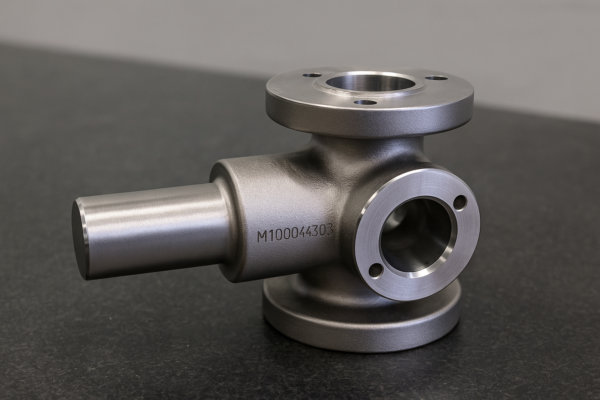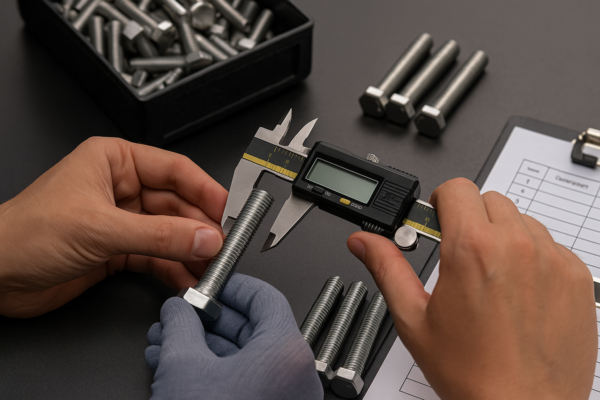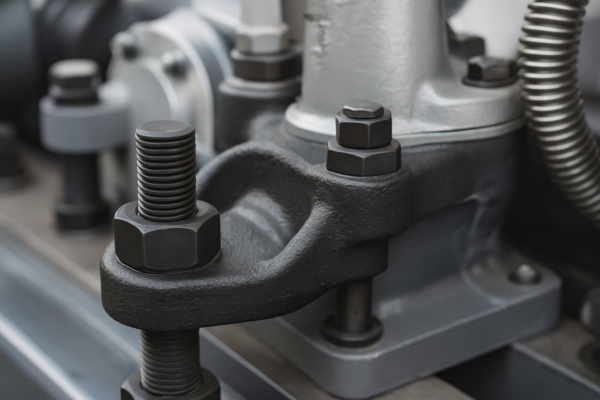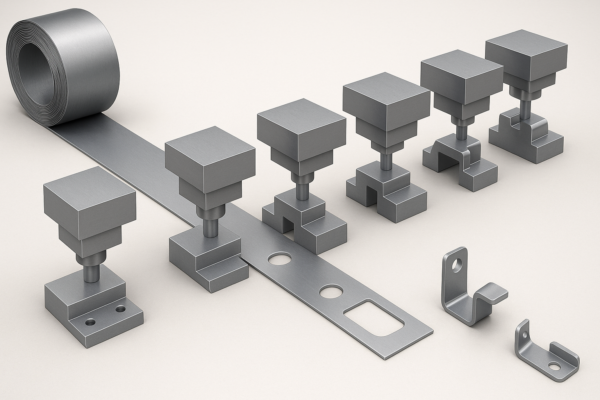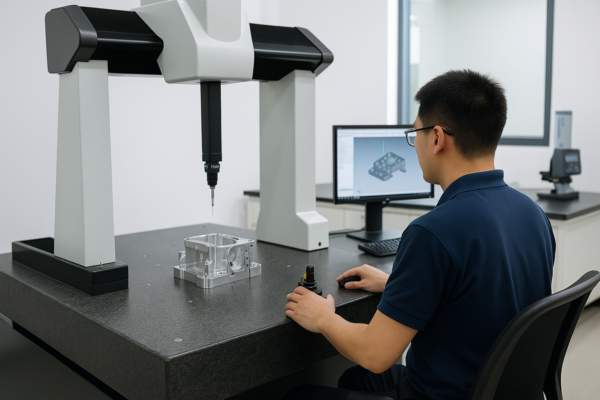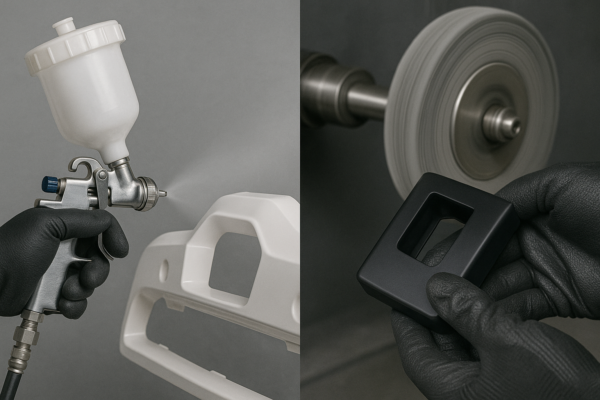Why Can’t You Forge Cast Iron?
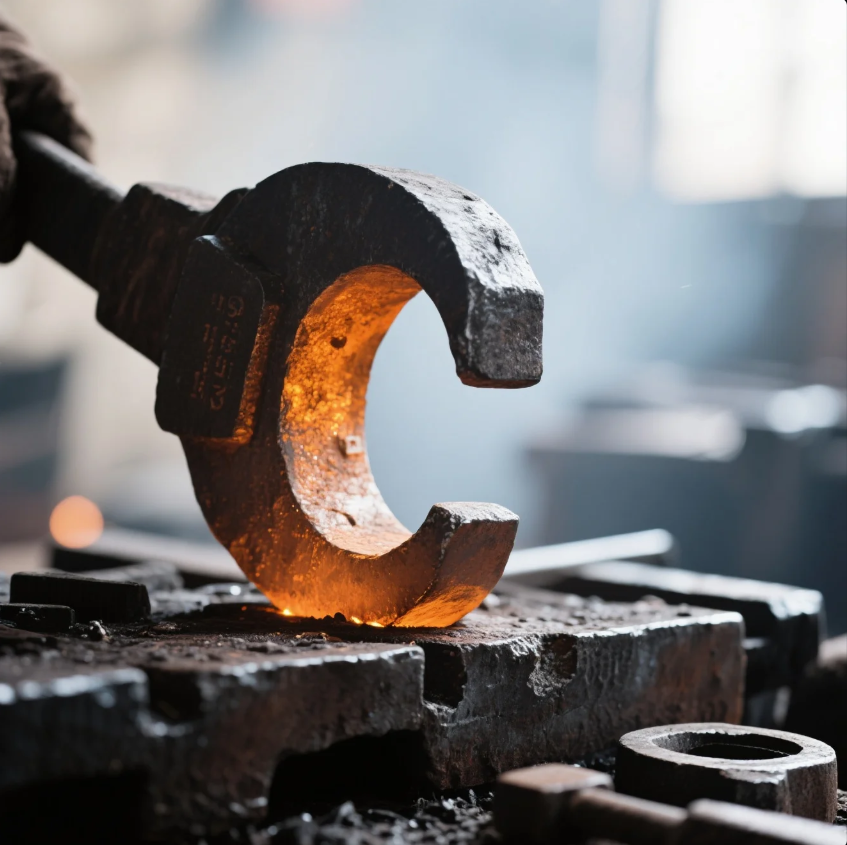
Cast iron is a popular material used in many industries for its excellent castability and high wear resistance. However, when it comes to forging, cast iron presents some unique challenges. In this article, we’ll explain why cast iron cannot be forged and explore alternatives that might better suit your needs.
Snippet paragraph: Cast iron is too brittle and lacks the necessary malleability, making it unsuitable for forging.
Let’s dive deeper into why cast iron is not ideal for forging and what other metals are more suitable.
Why Can’t Cast Iron Be Forged?
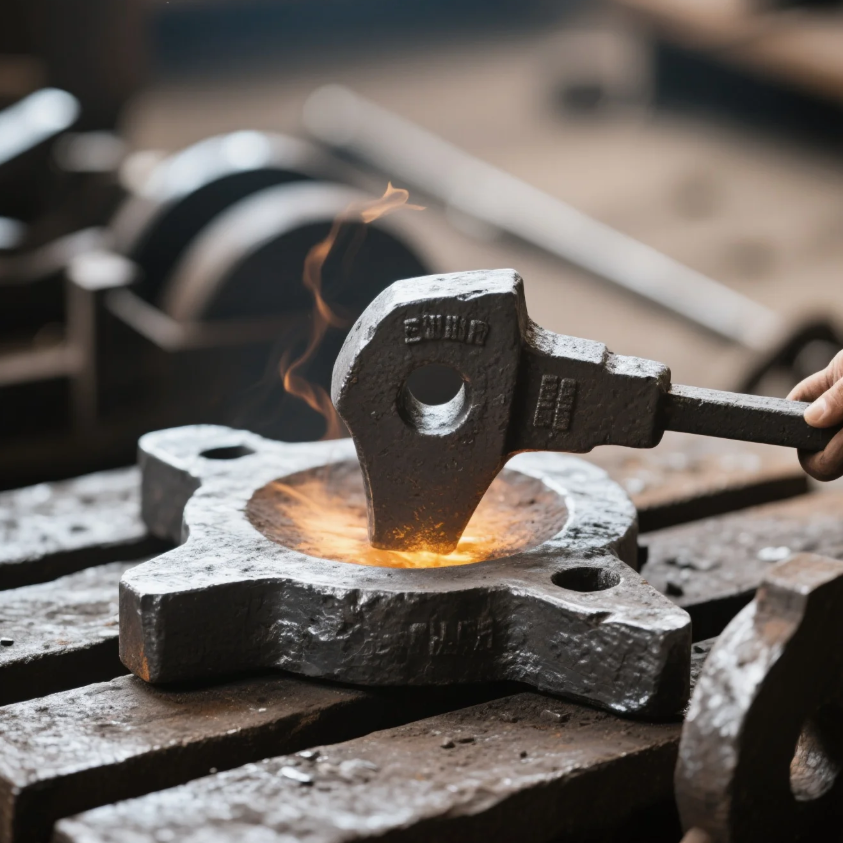
The primary reason cast iron cannot be forged is its brittleness. Unlike metals like steel or aluminum, cast iron has a high carbon content that forms graphite flakes within the material. These flakes create weak points in the metal, making it prone to cracking under pressure.
Key Reasons Why Cast Iron Can’t Be Forged:
- Brittle Structure: Cast iron’s structure is inherently brittle, which makes it more prone to cracking under the high pressure involved in forging.
- Lack of Ductility: Cast iron doesn’t have the malleability needed to be shaped without fracturing. It lacks the flexibility of metals like steel or aluminum.
- High Carbon Content: The high carbon content of cast iron contributes to its hardness, but it also makes it less ductile and more prone to breaking under force.
Due to these properties, cast iron is better suited for casting, where it is poured into molds to form shapes, rather than forging, where pressure and heat are used to shape the metal.
Is Cast Iron Good for Forging?
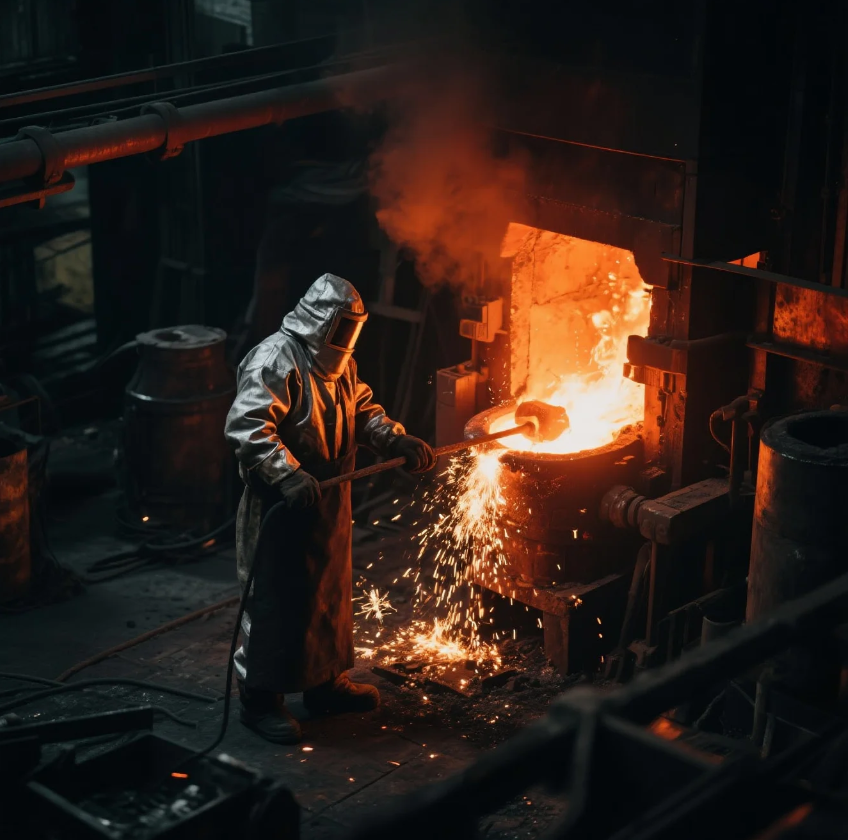
Cast iron is not good for forging due to its inherent brittleness and lack of ductility. While it excels in casting applications where intricate shapes can be formed in molds, the same qualities that make it ideal for casting make it unsuitable for forging. The high carbon content that makes cast iron hard also makes it much more difficult to work with under pressure, and it tends to crack or break when attempting to forge it.
Why Cast Iron Doesn’t Forged Well:
- Cracking Under Pressure: The high carbon content leads to a crystalline structure that is prone to cracking when stressed.
- Limited Flexibility: It’s difficult to deform or shape cast iron without causing fractures.
- Not Ideal for High-Impact Applications: Forged metals tend to be used in high-stress environments, and cast iron cannot withstand the impacts without breaking.
Although cast iron may be useful in some structural applications, when it comes to parts that require the high strength and durability typically provided by forging, cast iron is not a suitable material.
Why Can’t You Weld Cast Iron?
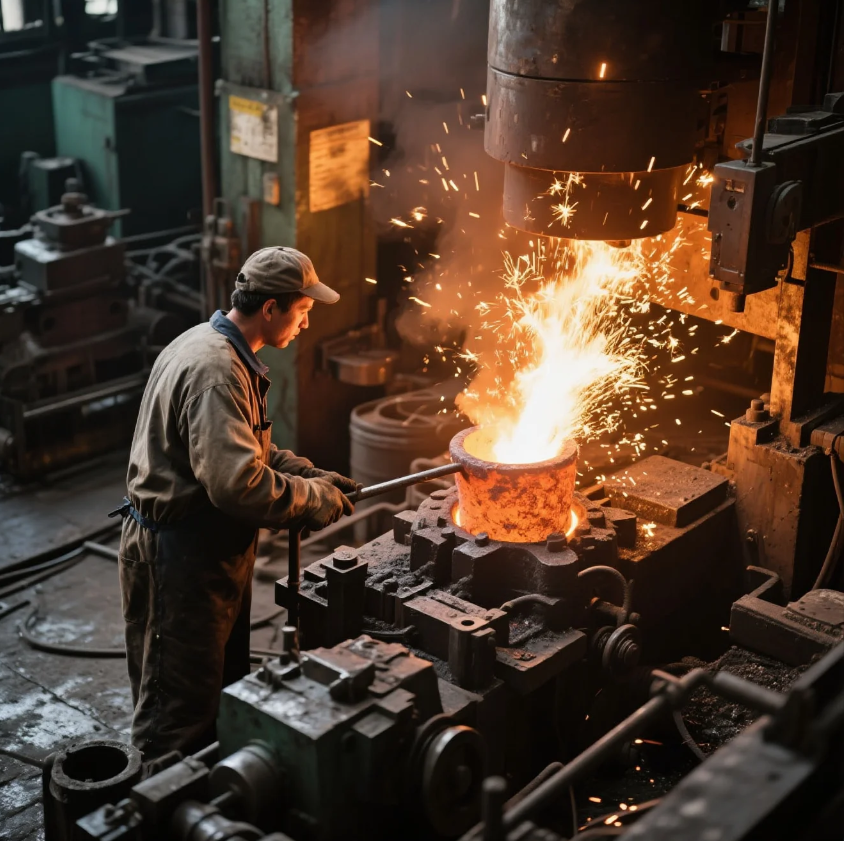
Welding cast iron presents its own set of challenges due to the material’s high carbon content and the presence of graphite. Welding cast iron can be difficult because it’s prone to cracking, warping, and forming brittle welds. Unlike other metals, cast iron’s crystalline structure does not allow for easy fusion with other metals.
Key Reasons Why Cast Iron is Difficult to Weld:
- Brittle Nature: The high carbon content makes cast iron more prone to cracking during the welding process.
- Thermal Sensitivity: Cast iron expands and contracts unevenly when heated, leading to the risk of warping or cracking during welding.
- Graphite Content: The graphite in cast iron can interfere with the welding process, preventing proper fusion between the metal and the welding filler.
Because of these factors, welding cast iron requires specialized techniques and often results in weaker joints compared to welding more ductile metals like steel.
What Metals Cannot Be Forged?
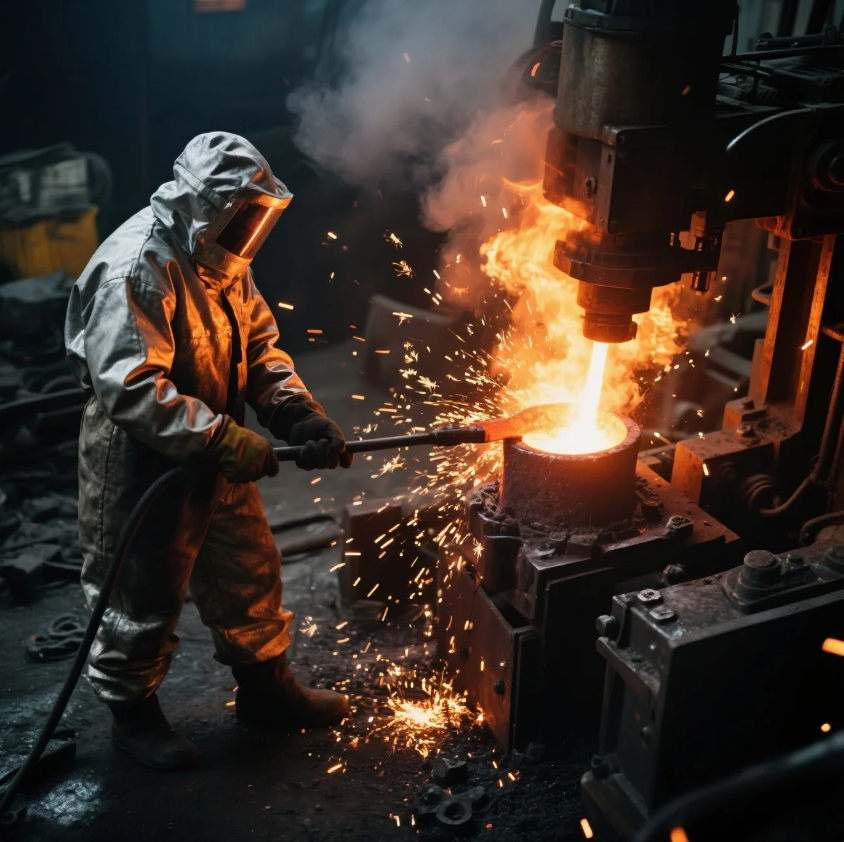
While many metals can be forged, some materials are not suitable for the process due to their physical properties. Metals that are too brittle, too hard, or lack ductility are unsuitable for forging.
Metals That Cannot Be Forged:
- Cast Iron: As previously discussed, cast iron is too brittle and lacks the necessary malleability for forging.
- Lead: Lead is too soft to withstand the pressure of forging and would simply deform rather than retain its shape.
- Beryllium: This metal is highly toxic and brittle, making it unsuitable for most forging applications.
- Certain High-Carbon Steels: Steels with very high carbon content may be too brittle to forge effectively without special processes.
Metals that cannot be forged are often better suited for other manufacturing processes like casting, extrusion, or machining.
Conclusion
Cast iron’s brittleness, combined with its high carbon content and lack of ductility, makes it unsuitable for forging. While it works well in casting processes, it doesn’t handle the stresses involved in forging and is prone to cracking under pressure. If you’re looking to forge durable, high-strength parts, consider using materials like mild steel, alloy steel, or aluminum, which are more suitable for the forging process. At Prime, we specialize in high-quality forged parts and can help you choose the right material for your needs. Contact us today for expert advice and a custom quote.

